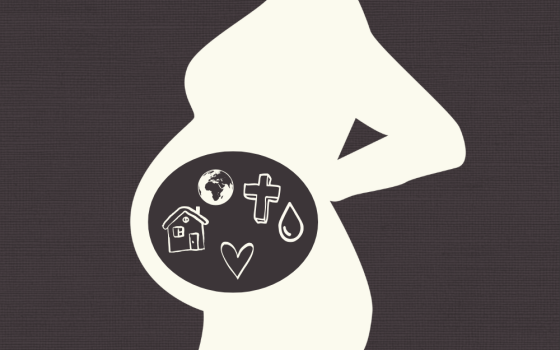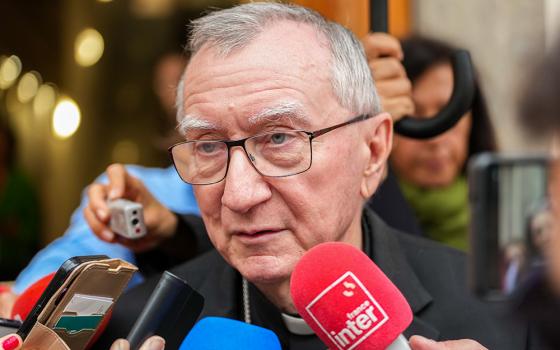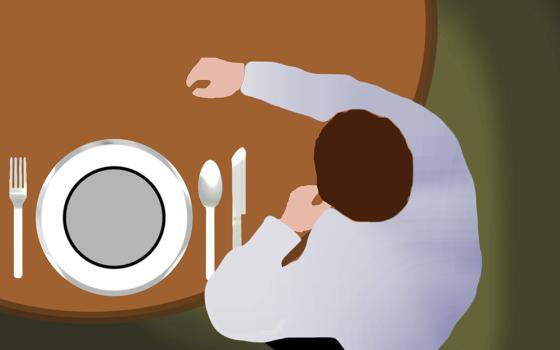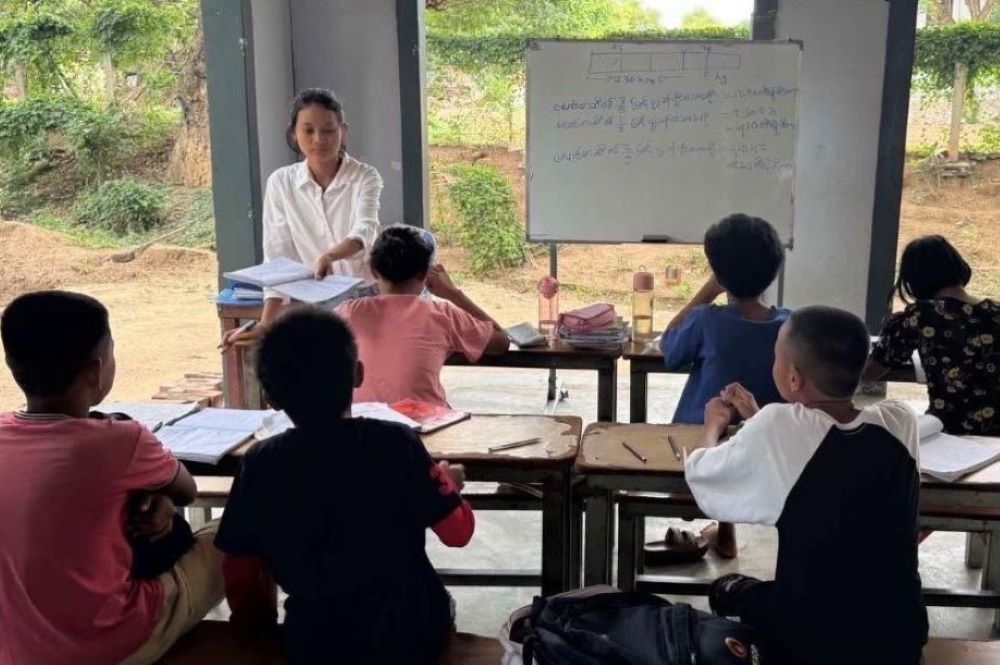
Children attend a class at the Child Protection Center run by the Sisters of Our Lady of the Charity of the Good Shepherd in Myit Nge town in Myanmar June.30. (John Zaw)
On a cloudy July morning, groups of young boys and girls are busy reading new lessons under the supervision of teachers and two nuns in the town of Myit Nge in central Myanmar.
The usual quiet of the well-maintained Child Protection Center, nestled beneath mango and tamarind trees, is occasionally broken by children's laughter and chatter. The center, operated by the Sisters of Our Lady of the Charity of the Good Shepherd, cares for approximately 40 children from conflict areas, girls and boys in grades 2 through 9.
After finishing grade 10, boys and girls can continue their education at local schools or through sister-led programs elsewhere. Those who do not pursue further schooling can learn vocational skills at the sisters' training centers, the nuns said.
"Some of them don't want to return to their homes even after the school ends at noon with the midday meal," Sister Marian, the head of the outreach program, told Global Sisters Report. (She uses only one name.)
Sr. Amy Martina, who oversees the center, told GSR that they established the center in 2021 after observing that many children had dropped out of school during the COVID-19 pandemic and even more dropped out after conflict began with a 2021 military coup.
Martina said the effort is not just to provide an alternative school but also to help children overcome the trauma and poverty caused by the war and find meaning in their lives and hope for the future.
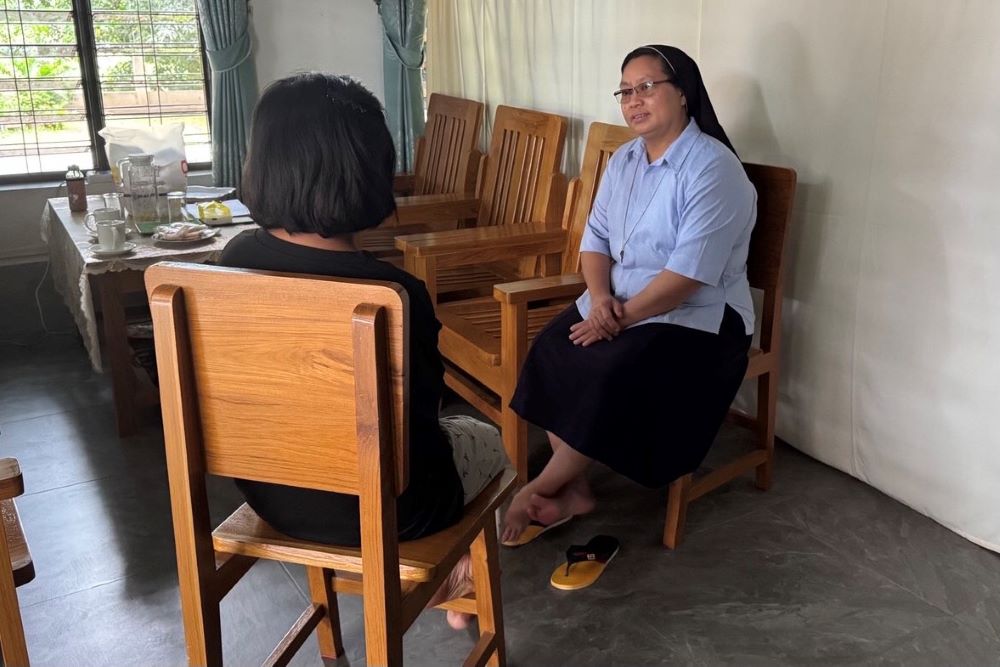
A counseling session at the Child Protection Center in Myit Nge town, near Mandalay, Myanmar, on June 30 (John Zaw )
The nun said about 20 children from conflict areas — where their homes were destroyed by bombings, or their parents live far away in temporary camps — are also housed in a "live-in facility" like a hostel.
Most children at the center come from conflict-affected areas of Kachin, Kayah, Chin and Shan, where the military junta and resistance forces are fighting.
One girl comes from a conflict-torn region in eastern Myanmar, where she and her family members were forced to flee from their homes due to the ongoing civil war.
Like many other children in the center, she shivers whenever she hears an airplane flying overhead. She often cries for no apparent reason, and sometimes she sits quietly, staring out through the window during class.
The ongoing fighting and the March 28 earthquake, which had a magnitude of 7.7 and killed more than 3,000 people, "have wounded all of us, including our sisters, but we act as wounded healers," Martina told GSR.
The coup, violence and COVID-19 pandemic have disrupted education in the country, with about 25% of government schools closed and enrollment dropping to 80% in some areas.
The education system is crippled after many teachers and professors were suspended by the junta, according to government data, in retaliation for a large number of teaching staff quitting jobs to protest the coup.
The earthquake further worsened the situation, especially for the poor, whose homes were destroyed or damaged.
Advertisement
Martina said the first months at the center are challenging "for the children as well as the teachers," as the children must learn basic activities such as interacting with others, eating and attending classes.
The center offers meditation and counseling, and helps students share their stories through painting and art. Children are also encouraged to play and dance, allowing them to make friends and socialize.
Group counseling happens once a week. For individual counseling, the nuns "are available to provide time whenever the children want to share or discuss something," Martina said.
Both the nuns live with the children in the one-story building, making themselves available whenever they need help.
"When they talk to me, most of them cry. I let them cry so they can release their stress and feel some relief after sharing their feelings or experiences," Martina said.
It takes five to six months to heal their trauma, but once they can cope with their problems; "they feel happy and safe in this place," she added.
The center, locally known as Kalay Saunt Shout Yae Gayhar (child-friendly space), also provides free informal education to students Monday through Friday and offers a midday meal.
"We wish to have more children in our classes, but we cannot because of the shortage of teachers," Martina said. Many parents request to enroll their children, "but we cannot hire more teachers," she added.
In addition to the two nuns, the center also has four paid teachers. The center relies on donations, including local contributions.
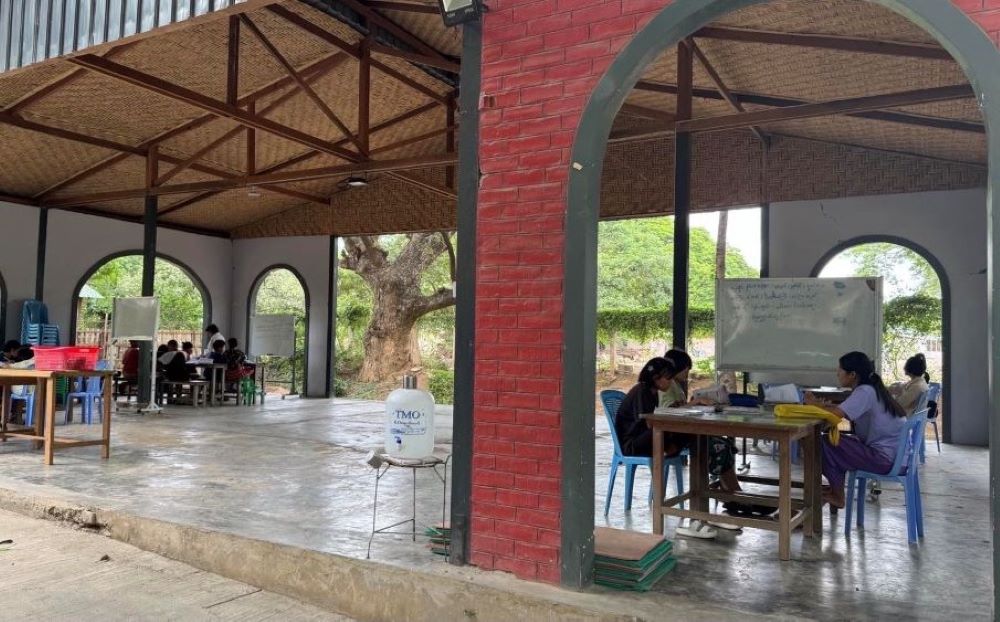
Students attend classes at the Child Protection Center run by the Sisters of Our Lady of the Charity of the Good Shepherd in Myit Nge town in Myanmar June 30. (John Zaw)
"Even some parents who are vegetable sellers in the local market donate to the center because they want the center to keep going and support their children's education," Martinasaid.
Some children were on the streets, even begging for food due to their parents' economic struggles. "It led us to establish the center here," she added.
The center is located in a 1-acre plot of land donated by a Catholic businessman, in a working-class neighborhood of Buddhists and Muslims. It features a learning area, a playground, a residential space and a small Marian grotto. Most children in the area go to government schools, and the center only admits children who need special care, Martina said.
The center also hosts an all-day festival each year intended to help students recognize their talents and skills. The event features games, music, dance, art contests and a meal, the nun said.
"All the facilities at the center are designed to ensure a happy, friendly and safe environment for the children," Martina said.
*This story was updated with a name correction.



